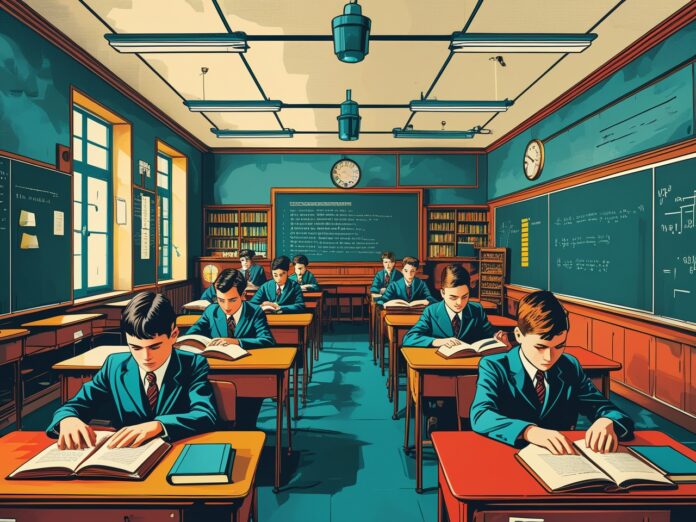You don’t have to read. You don’t have to read the right things, in the right order, with the right posture, at the right age. You don’t have to read paperbacks with the covers torn off, or hardcovers with blurbs from Jonathan Franzen and Zadie Smith. You don’t have to read on a beach with your legs crossed like scissors or on the subway with your tote bag proudly flopped over your lap. You don’t have to read during your lunch break, or before bed, or early in the morning before the world wakes up and the algorithms take hold. You don’t have to read seriously. You don’t have to read properly. You don’t have to read at all.
There is something curiously Victorian about the way we talk about reading now. It’s not enough that books exist; they must be morally beneficial. Reading is not just an activity; it’s a virtue. To be a reader is to be better. And to be better, one must be seen reading. Not just anything, of course, but books. And not just books, but novels. And not just novels, but the ones that come with the right kinds of endorsements, the ones with trauma or war or generational suffering, the ones that people read in Book Club and talk about on Instagram but never, ever finish. Reading is no longer about curiosity or joy or friction or surprise. It’s about performance, status, a vague sense of self-improvement that no one can quite define but everyone seems to believe in.
It wasn’t always like this. The people who now wring their hands about “young people” and their “poor reading comprehension” are the same ones who decades ago insisted on a literary canon that excluded almost everything outside a narrow Western, male, white, hetero worldview. They were the gatekeepers then, and they remain the gatekeepers now, just with newer tools. They’ve swapped tweed for cardigans, literary journals for podcasts, and ivory towers for Twitter bios that read like LinkedIn résumés. But the message hasn’t changed: there are things worth reading, and there is everything else. Scrolls don’t count. Lyrics don’t count. Subtitles don’t count. Marginalia don’t count. TikTok captions definitely don’t count. None of that is reading. Only we know what reading is. And we are very disappointed in you.
This obsession with books as the only legitimate form of reading is not just wrong, it’s historically illiterate. Most of human history is oral. We spoke stories before we wrote them. We passed on myths, techniques, taxonomies, kinship systems—none of it “read” in the conventional sense. Reading as we know it is a recent phenomenon. Reading silently, even more so. The idea that reading should be private, moral, uplifting, civilizing—that’s a particular ideological fantasy. And it serves particular institutions. Schools, mostly. But also universities, publishing houses, literary nonprofits, corporate think tanks, and all the adjacent clerical elites who make their living lamenting the death of something they themselves narrowed into irrelevance.
This is not an argument against books. Books are amazing. Books are portals, weapons, spells, hiding places, slow-burning ideas. You can love them, hoard them, write in them, destroy them. Books have saved lives. Books have ended them. The problem isn’t books. The problem is how we’ve turned them into a moral credential. How we’ve replaced reading with having read, and having read with having read what everyone else is pretending to have read. We’ve created a culture in which reading is more about optics than experience. A good reader is not someone who finds something new, but someone who arrives late to the same party and still wants credit for showing up.
And of course, all this is wrapped up in class. The right kind of reading is always the reading that signals taste. It’s coded. It’s expensive. It’s full of nods and winks. It’s the kind of reading that gets you into the seminar room or the editorial meeting or the literary festival panel. It is emphatically not the kind of reading that happens in fan forums, Wikipedia rabbit holes, or the comment sections of 2009 YouTube videos. You can spend six hours reading about astrological chart interpretation, the collapse of Yugoslavia, or the industrial design of air fryers—but if it doesn’t come with a spine and a review in The New Yorker, it doesn’t count.
This idea that “kids these days don’t read” is both lazy and false. They read constantly. They read across formats, across platforms, across registers. They read memes, threads, screenshots, manifestos, how-tos, fanfics, botched subtitles, and way too much medical misinformation. They read under surveillance, through distraction, and in hostile information ecologies. What they don’t read are the books we told them mattered and then made completely inaccessible—either by price, by tone, or by sheer irrelevance. We gave them a canon that ignored their lives, and then blamed them for walking away.
Reading, real reading, is alive and well. But it no longer needs the approval of cultural intermediaries to justify itself. It doesn’t have to look like homework. It doesn’t have to come with a coffee and a throw blanket. It doesn’t have to be in English. It doesn’t have to be in prose. It doesn’t have to be published. And it definitely doesn’t have to be a novel.
You don’t have to read to be smart. You don’t have to read to be good. You don’t have to read to deserve to speak. Read because you want to. Read because you’re lost. Read because something glows in a sentence and won’t let you go. Or don’t read. Don’t fake it. Don’t perform it. Don’t buy into the quiet smugness of people who think their bookshelf says something important about them. Reading isn’t dead, but it’s also not sacred. And maybe that’s the most liberating thing about it.
